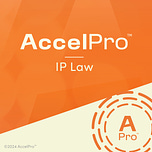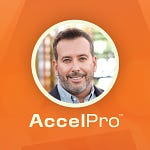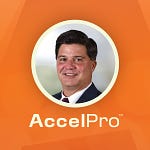Listen on Apple Podcasts, Spotify and YouTube
Welcome to AccelPro IP Law, where we provide expert interviews and coaching to accelerate your professional development. Today we’re featuring a conversation with Rolf Claessen, Equity Partner at Michalski, Hüttermann & Partner and host of the IP Fridays podcast.
In this interview, Claessen discusses the European Union’s Unified Patent Court and how the court’s establishment changes the patent law landscape in Europe. He touches on the Boards of Appeal of the European Patent Office and how the UPC streamlines the current patent process.
Listen on Apple Podcasts, Spotify and YouTube.
Interview References:
Rolf Claessen’s profile.
2:28 | Unified Patent Court (UPC).
Supplemental Materials:
Claessen, Rolf and Suzan, Kenneth. IP Fridays.
Unitary Patent & Unified Patent Court. European Patent Office (EPO).
TRANSCRIPT
I. WHAT IS THE UNIFIED PATENT COURT?
Neal Ungerleider, Host: Can you tell our listeners about your work and background?
Rolf Claessen: I'm a chemist by trade. I got my degree from SUNY Albany in New York. And then I first worked in the chemical industry in Germany before becoming a patent attorney.
Michalski, Hüttermann is one of the largest patent law firms in Germany, with about a hundred people. We have several locations but our main location is Düsseldorf, where I also work. I focus on patents, some trademarks and mostly prosecution, but some litigation as well.
NU: For listeners who may be unfamiliar, what is the Unified Patent Court?
RC: The Unified Patent Court just opened its doors recently. It's a centralized patent litigation system. Before the advent of the Unified Patent Court, the patentees had to sue other parties in all the different countries in Europe–let's say in Germany, and in France, and in Italy, and in the UK. And now they can sue these parties in one centralized court.
The main locations are in Paris, in Munich, and in Milan. But the first instance proceedings mostly take place at so-called local or regional divisions. And so the litigants don't really have to change their mindset too much, because the most important locations are in Munich and in Düsseldorf.
That's also where the most litigation took place before the UPC opened its doors.
NU: Rolf, from your perspective, what are the key differences between the UPC and other patent systems you've worked with?
RC: It was a major change. Because now, the patentees of European patents (if they do not opt out their patents, which we will talk about later), can sue parties in 17 different countries.
More are coming. And, so that is a big change. You can get an injunction against a defendant in 17 countries instead of one. At the moment, patentees are reluctant to use the system because they don't know how the case law will evolve. And nobody really knows that. But most of the judges that are currently working at the UPC have been very experienced judges in their respective countries.
About two-thirds of the judges come from Germany, so we can expect not to be surprised too much. Before the UPC, let's say that maybe two-thirds of all patent litigation cases in Europe took place in Germany. So it's not really a coincidence that two-thirds of the judges are now also German.
NU: Because the UPC operates alongside national courts, do you anticipate an increase in litigation in the near term?
RC: Maybe a little bit. At the moment, the strategy seems to be that parties are still suing the other parties nationally. But in parallel, they also sue them with the UPC.
Maybe in the short term, we will see a slight increase in overall numbers of patent litigation cases in Europe. But there is a time frame of about seven years at the moment. After this time frame, all patent litigation arising from European patents granted by the European Patent Office will take place at the Unified Patent Court.
—
II. CHALLENGES AT THE UPC
NU: What are some challenges or issues that have arisen during litigation in the UPC? How have you seen attorneys address them so far?
RC: That's difficult to say, because the files are not public. The UPC only opened its doors in June this year. So we have only a handful of cases that are already decided. These are preliminary injunctions mostly that have been issued.
I think they are mostly in line with the case law that we already know from German patent litigation courts and the European Boards of Appeal of the European Patent Office. But nothing really unexpected.
It's a much more streamlined process. If you wanted to sue someone in Germany, the other party could file an action to invalidate the patent at the Bundespatentgericht, the Federal Patent Court in Germany. It was a bifurcated system where there were infringement proceedings at the civil court and then revocation actions at the Federal Patent Court; this led to some very strange situations where the litigation court already decided infringement but the Federal Patent Court decided three years later about the invalidity of the patent.
That was difficult to handle. That is now much easier with both validity and infringement decided by the same court in the same proceedings. So once a patent litigation case is received by the UPC, then the defendant has the option to file basically a revocation action in the same proceedings.
Both are decided at the same time, with the same court. And the deadlines are quite strict. So I think things will become easier, and more streamlined.
NU: How can attorneys educate their clients on the unique aspects of UPC proceedings? How do you manage client expectations around the new court and set the stage for UPC versus one of the national courts?
RC: That's really difficult to answer, and also very difficult for the clients to decide because we have no experience yet with what the case law will be and how the UPC will decide. We can only estimate that they will be very similar to the German case law and the French case law. And maybe the Italian and Dutch case law.
But the legislation is not harmonized. The Federal Court of Justice in Germany has their own way of deciding obviousness or the inventive step. And that's a little bit different from the Boards of Appeal of the European Patent Office. And that is also a little bit different from the courts in the Netherlands or in France. We don't really know how inventive step or obviousness is decided, and what criteria are used at the moment. That also leaves the clients a little bit unclear how the cases will be decided.
On the other hand, we encourage our clients–at least I do–to join the system and not opt out their patents. Because, maybe it's the same as with the European Patent Office when that was introduced in the 70s.
If you join the system early on, you have the chance to craft the case law. You have more influence on how the case law will evolve, if you are party to one of the early cases. Then you at least have the chance to submit your arguments and to argue for certain principles and criteria to assess.
A lot of the larger industrial clients are not opting out all their patents. Some even do not opt out of any of the patents, and join with all their European patents. Some are also in parallel, as I said, filing German patents and then opting in their European patents.
One branch or one technological field is a little hesitant, and that is pharmaceuticals. They are opting out a lot of their patents. Because now, the patent can be invalidated for a lot of countries at once, basically in one proceeding. And they are afraid that they can lose patent protection in all countries with one proceeding.
They don't know how the case law will be decided. So they are unsure whether the case law will evolve and so they are hesitant to use their patents at the Unified Patent Court.
But on the other hand, I don't really understand this argument.
If a German court decided the patent is invalid, or let's say a French court decided the patent is invalid, then the German court wouldn't decide the other way, typically. I don't really understand this argument too much; to withdraw the patents just because they are prone to revocation in so many countries at one time. You couldn't enforce the patent anyway if the patent was invalidated in one important jurisdiction.
NU: And is the process of applying for a unitary patent substantially different from that of a traditional patent?
RC: Not really. It was solved quite easily for the patentees. So far, if you received a European patent, you were able to validate the patent in certain countries.
For example: If the European patent was granted, then you were able to validate it in the UK, France, Germany, Spain, Italy, and so on. Now, you can just validate it basically as a unitary patent in 17 countries at one time. You have to pay a little more and file one translation, and then you are good to go to have a patent in 17 countries.
It's very easy and straightforward to get a unitary European patent. And you are free to also validate the patent in the different countries.
For example, there are many countries that are not party to the UPC agreement yet, and some will never be. For example, the UK is not a part of the EU anymore. Other countries like Switzerland, Turkey and Iceland are all party to the European patent system of the European Patent Office, but they cannot join this agreement. It will always be the case that you can always choose to validate European granted patents as national patents in different countries. But now you have the option to validate it as a unitary patent.
NU: For listeners outside of participating countries, are there any resources you can recommend for attorneys who want to better understand the UPC for themselves and their clients?
RC: Yes, there are. The Unified Patent Court website is quite informative. They have all the agreements and guidelines on their website. The European Patent Office has a very helpful subsite, on their website, explaining the new system and the unitary patent.
—
III. THE PATH TO IP LAW
NU: I want to shift gears a to talk about your career. So you come from a chemistry background. And you mentioned earlier attending SUNY Albany in the United States. What led you to intellectual property law as a career path?
RC: That's an interesting path. When I was studying for my PhD at SUNY Albany, my advisor was John Welch, an Organic Chemistry professor there. He was a very clever guy and he invented a lot of things. But he didn't really like talking with the patent attorneys there because it was too dry for him.
It somehow became my job to talk to the patent attorneys. That was fun for me to get a first introduction to patent law this way. Later on, when I joined a nanotechnology startup that was just spun out of the Bayer corporate group, I had a lot to do with patent attorneys. Because, firstly, we filed patent applications. But most importantly, I was a product manager. I led the sales efforts of the technology.
I was talking with the patent attorney a lot, who gave me reports on what the competitors are working on, and what technologies.
Then, as with a lot of startups, we went bankrupt. So I had to decide what to do. Then I asked this patent attorney how to become a patent attorney.
Going to law school and becoming a patent attorney is the best thing that ever happened to me. I get to know all these cool ideas that are on my desk. It's intellectually challenging to dive into these new technologies. And I've been a patent attorney since 2006, quite a long time now.
Listen on Apple Podcasts, Spotify and YouTube.
This AccelPro audio transcript has been edited and organized for clarity. This interview was recorded on November 27, 2023.
AccelPro’s expert interviews and coaching accelerate your professional development. Our mission is to improve your day-to-day job performance and make your career goals achievable.
Please send your comments and career questions to questions@joinaccelpro.com. You can also call us at 614-642-2235.
If your colleagues in any sector of the IP law field might be interested, please let them know about AccelPro. As our community grows, it grows more useful for its members.












